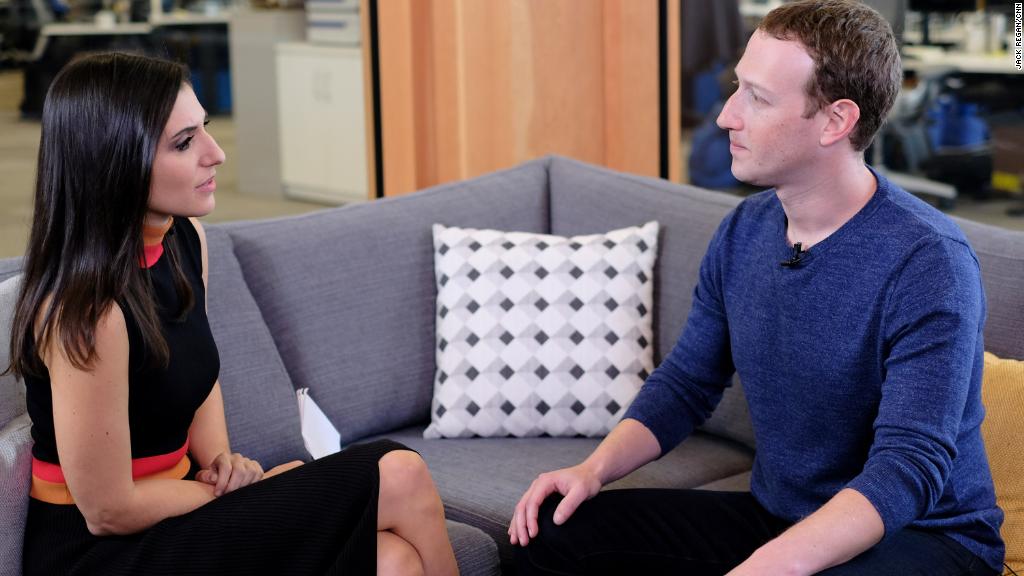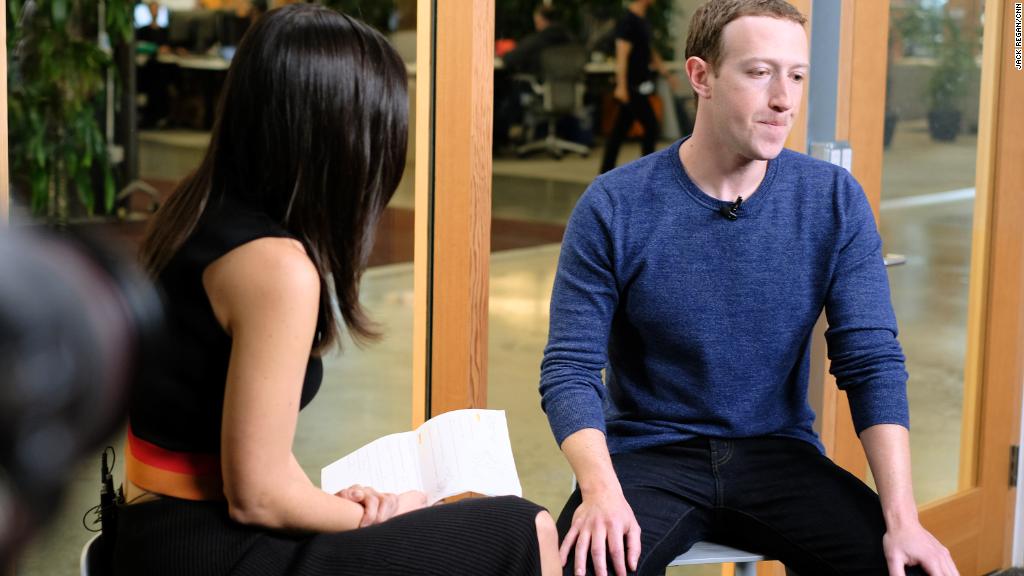
Mark Zuckerberg is not comfortable with the enormous influence he has over the world.
During his apology tour this week for the Cambridge Analytica data scandal, Zuckerberg lent support to the idea of regulating Facebook and admitted he'd rather not be the person making content policy decisions for the world.
But he pushed back on one thing: Facebook's immense power.
When CNN's Laurie Segall asked if Facebook (FB) had become "too powerful," Zuckerberg responded: "I don't think so."
"The reason why we've succeeded as a company is because we serve people and give people power," Zuckerberg said. "The day that we stop doing that, we'll stop being a relevant company."
Zuckerberg argued that history shows any list of "the biggest [companies] in any given industry" will inevitably change "ten years later, or ten years after that."
And yet, at this moment, Facebook isn't just on the list, but nearly unrivaled in its dominance. It has billions of users and tremendous influence over the media and advertising industries. It also has no obvious direct competitor who can take it down thanks to years of acquiring and cloning newer social media companies.
"It influences how more than 2 billion around the world people see, think, and feel. I can't think of an institution that has close to that power, with the possible exception of Google," says Siva Vaidhyanathan, a media studies professor at the University of Virginia and author of a forthcoming book on Facebook's impact on democracy.
"For Mark Zuckerberg to deny that," he added, "is insulting."
Related: Zuckerberg opens the door to testifying before Congress
Facebook is widely considered one of the "big four" tech companies, along with Apple (AAPL), Amazon (AMZN) and Google's parent company, Alphabet (GOOGL). Like others in this group, Facebook has the ability to upend new industries overnight — and perhaps upend society itself.
News broke last weekend that Cambridge Analytica, a data firm with ties to President Donald Trump's campaign, reportedly accessed information from about 50 million Facebook users without their knowledge.
Facebook has faced other controversies over user data and privacy, but the stakes have grown with the platform's influence. This time, it wasn't simply a matter of selling ads, but potentially swaying an election.
Once again, Facebook was forced to account for its role in the 2016 election after what was already a bruising year full of stories about fake news, foreign election meddling and filter bubbles.
"Any company that can influence a US presidential election without being aware that it is doing so is demonstrably too powerful," Roger McNamee, Zuckerberg's former mentor and a venture capitalist, told CNN by email.
Brian Wieser, an analyst who tracks Facebook for Pivotal Research Group, says the real issue plaguing the company may not be whether it's too powerful so much as whether it became powerful too fast.
"It looks like a problem that has emerged is that they may have become big and powerful too quickly, without ensuring their foundations were solid enough to withstand the growth they have had," Wieser told CNN.
Dex Torricke-Barton, a former speechwriter for Zuckerberg and former executive communications manager for Facebook, disagrees that the company is too powerful. But the idea that it is does create a genuine challenge for Facebook, he said.
"The perception that Facebook is all-powerful places an unfair burden on the company," he said. "The challenges of misinformation, fake news and bad online actors didn't begin with Facebook, and can't be solved by Facebook alone."

Zuckerberg may play down how powerful Facebook is, but his interviews this week highlight his clear discomfort with the responsibility he now has, not just to make products, but to make policies with global impact.
"I feel fundamentally uncomfortable sitting here in California in an office making content policy decisions for people around the world," Zuckerberg told Re/code. "[The] thing is like, 'Where's the line on hate speech?' I mean, who chose me to be the person that did that? I guess I have to, because of [where we are] now, but I'd rather not."
In the CNN interview, Zuckerberg said if anyone had told him when he founded Facebook in 2004 that he'd one day be battling state actors, "I wouldn't have really believed that that would be something I'd have to work on 14 years later."

